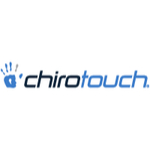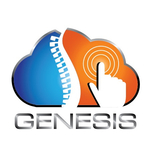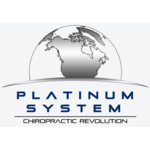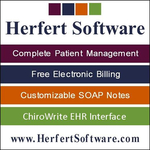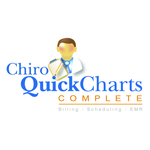List of Best Chiropractice Software
Showing 10 of 31 productsChiroTouch, the leading software solution for chiropractic practices. With its user-friendly interface features, ChiroTouch streamlines daily operations and increases efficiency for practitioners. Say goodbye to manual tasks and hello to more time fo...Read ChiroTouch Reviews
Kareo is a and innovative healthcare technology company that offers a wide range of solutions for healthcare providers. With its user-friendly software and customizable features, Kareo aims to simplify and streamline daily tasks, improve patient care...Read Kareo Reviews
MacPractice is a and versatile practice management software designed specifically for healthcare professionals. With its user-friendly interface and customizable features, it streamlines administrative tasks and improves overall efficiency for medica...Read MacPractice Reviews
Genesis Chiropractic, a premier destination for holistic wellness and pain relief through chiropractic care. Our team of highly trained professionals is dedicated to improving your overall health and well-being through safe and effective treatments...Read Genesis Chiropractic Reviews
Hello and Platinum Chiropractic, where your health and wellness are our top priorities. Our team of skilled chiropractors utilizes advanced techniques and personalized care to help you achieve optimal physical and mental well-being. Trust us to provi...Read Platinum Chiropractic Reviews
Herfert is a name that represents innovation, efficiency, and success in the world of software. With its powerful capabilities and user-friendly interface, Herfert is redefining the way businesses operate. Say goodbye to complex and outdated software...Read Herfert Reviews
Chiro QuickCharts is a software designed specifically for chiropractors. With its user-friendly interface features, Chiro QuickCharts streamlines the patient management process, allowing for a more efficient and organized practice. Say goodbye to man...Read Chiro QuickCharts Reviews
eHospital is a digital solution for all your healthcare needs. Designed to simplify and streamline the medical process, eHospital provides an all-in-one platform for patients and medical professionals to connect and manage their healthcare services...Read eHospital Reviews
Yocale, the all-in-one appointment scheduling and business management software. With intuitive features and user-friendly interface, Yocale helps business owners streamline their daily tasks, manage appointments, and optimize their schedule. Say good...Read Yocale Reviews
Sevocity Premier is a dynamic and user-friendly software that revolutionizes the way medical practices manage patient information. With its robust features design, Sevocity Premier streamlines tasks such as charting, e-prescribing, and billing, allow...Read Sevocity Premier Reviews
- What Is Chiropractic Software?
- Top Reasons Why Businesses Need Chiropractic Software?
- What Are the Top Key Features of Chiropractic Software?
- What Are the Top Benefits of Chiropractic Software?
- What Are the Steps to Choose the Right Chiropractic Software?
- What Are the Types of Chiropractic Software for Different Industries?
- What Are the Technology Trends for Best Chiropractic Software?
- What Are the Deployment Options for Chiropractic Software?
What Is Chiropractic Software?
Chiropractic software is a type of electronic medical record (EMR) system that is specifically built for chiropractic offices and practices. It facilitates patient record communication and recording, such as office notes, visit history, patient profile, appointment scheduling, billing, and clinical results.
The program can be used to manage patient data, create personalized treatment plans, monitor patient progress, and preserve medical photos. It is an excellent tool for keeping chiropractic management software offices organized, productive, and informed about their patients' treatments and outcomes.
Because all of the data is recorded digitally in one location, the practice can track long-term patient trends and performance with the use of the best chiropractic software. By displaying patient trends over time, it can also assist in making the best treatment options.
Finally, because financial data can be retrieved promptly, it can make billing and other administrative chores easier. In brief, chiropractic management software is intended to assist chiropractors in providing the greatest care in the most efficient manner possible.
Top Reasons Why Businesses Need Chiropractic Software?
1. Automated Appointment Scheduling & Reminders: Automated scheduling and reminders assist reduce no-shows, make follow-up appointments easier to plan, and save time on manual scheduling activities.
2. Complete Patient Profiles: The best chiropractic software includes comprehensive patient profiles that capture patient histories, data, and documents, allowing practitioners to easily manage complete patient information.
3. Automated Billing & Payment Processing Automation: Chiropractic management software automates the entire billing process, including invoicing, payments, and paperwork.
4. Automated Insurance Claims Filing: Software assists in the speedy and secure filing of insurance claims, eliminating human data entry and saving time.
5. Customizable & Consistent Treatment Plans: The best chiropractic software enables practitioners to simply develop customised treatment plans for each patient while also tracking outcomes and progress.
6. Reporting & Analytics For Better Insights: Software can provide rapid data insights to help practitioners track key performance metrics and make educated decisions.
7. Improved Patient Retention: Appointment reminders and recalls can help enhance patient retention and prevent "no-shows."
8. More Effective Time & Resource Management: Chiropractic software helps practitioners manage resources more effectively by streamlining manual processes while also tracking patient progress.
9. HIPAA Compliance: Top chiropractic software assists practitioners in ensuring that their practices are HIPAA compliant.
10. Improved Document Management: Digital document management assists practitioners in securely storing, managing, and accessing patient information and documents.
11. Mobile App Support: Providing patients with a mobile app can make booking appointments, filling out paperwork, and accessing records easier and more convenient.
12. Integrations With Other Medical Systems: Software can be integrated with other medical systems such as Electronic Health Records (EHRs) and other software solutions.
13. Practise Expansion: Using the best chiropractic software, practitioners can simply expand their practice to several locations while remaining in compliance with all rules.
14. Easy Access to Financial & Clinical Data: Chiropractic management software enables practitioners to access financial and clinical data at any time and from any location.
15. Cost-Efficiency: Automating laborious activities saves time and money while increasing practice efficiency.
What Are the Top Key Features of Chiropractic Software?
1. Electronic Claims and Billing: A computerised system for submitting claims and collecting payments.
2. Scheduling: Patients should be able to book their own appointments online.
3. Specialised Exams: The ability to design and save specialised tests or surveys.
4. Clinical Notes/Documentation: Possibility of keeping patient notes.
5. Reporting: Creating reports to track different parts of the clinic.
6. Patient Portal: Allows patients to view their medical records, pay bills, and make appointments.
7. Practise Management: This enables the practise to keep track of financial data, insurance information, and inventory.
8. Custom Notifications: Informing employees about essential tasks and occurrences.
9. Electronic Health Records (EHR): Patient health record storage and access.
10. Integrations: Capability to connect to lab, accounting, and other data sources.
What Are the Top Benefits of Chiropractic Software?
1. Improved Documentation: Chiropractic software can help to streamline the documentation process by allowing practitioners to keep accurate and detailed records of their patients' care. This facilitates and expedites the treatment of patient cases.
2. Billing Automation: Chiropractic management software can help automate the billing process, speeding up payment for services performed and reducing billing errors.
3. Increased Accuracy: Automated processes, such as chiropractic software, can eliminate errors in paperwork and billing, hence improving the quality of care provided to patients.
4. More Efficient Scheduling: By utilizing the best chiropractic software, practitioners may readily identify the availability of their employees and arrange patient sessions more successfully. This increases efficiency and may result in improved patient satisfaction.
5. Reduced Costs: The greater efficiency of chiropractic software might result in cheaper practise costs.
6. Improved Patient Care: Top chiropractic software can help practitioners focus more on patient care by improving the documentation process and automating billing operations.
7. Better Reporting: Chiropractic management software can assist practitioners in producing reports more quickly and easily, allowing for more effective evaluation of patient visits and overall practice performance.
8. Enhanced Security: Secure online patient portals, which are available with certain chiropractic software, can allow patients simple access to their records while also providing increased security through the use of passwords and authentication.
What Are the Steps to Choose the Right Chiropractic Software?
1. Research and identify the key features you require from your program, such as online scheduling, medical record and billing capabilities, and so on.
2. Examine the software's features and how they might help your chiropractic practice improve its workflow and operations.
3. Compare several chiropractic management software and learn how they differ.
4. Select the program that best meets the needs of your practice and budget accordingly.
5. Use any free trials or demos that are available to better understand the interface, operations, and overall user experience.
6. Ensure that the program is compatible with your practice's existing technology.
7. Think about scalability, or what happens when your practice grows and what resources you'll need to keep the programme running and up to date.
8. Contact customer support for further information or to ask any specific queries.
9. Review client feedback and evaluate the vendor's customer service procedures.
10. Finally, make a decision and buy the software.
What Are the Types of Chiropractic Software for Different Industries?
Chiropractic software exists in a variety of formats, and different software packages are accessible for various businesses. In general, this software is intended to assist chiropractors in managing and tracking patient information, billing, and records. Top chiropractic software is classified into three types:
1. Clinical software: Clinical software assists chiropractors in tracking patient treatments, diagnosis, results, and medical history, as well as invoicing and payment management. This software is commonly utilised in larger medical practises.
2. Practise management software: It is used to manage practice-specific processes such as scheduling, billing, document processing, and appointment scheduling. This software is frequently used in single-physician and specialty clinics.
3. Software-as-a-service (SaaS) on the internet: Online SaaS software is a one-stop shop that lets you access patient data from any device. Because it is inexpensive and simple to use, this type of software is frequently employed in smaller chiropractic practises. Chiropractic software, regardless of business, is an excellent tool for making your practise more efficient and productive.
What Are the Technology Trends for Best Chiropractic Software?
The technology trends for best chiropractic software include:
1. Cloud computing: Cloud-based software gives physicians access to a shared computer resource without the need to purchase or maintain a physical machine. The cloud not only simplifies data storage and networking, but it also provides practitioners with automated upgrades and increased scalability.
2. Electronic health records (EHRs): Using EHRs to digitally store patient records and provide them via secure, remote access significantly lowers the need for paper-based records, enhancing efficiency, accuracy, and portability.
3. Machine Learning: By scanning data points and making informed conclusions about which treatments to prescribe, machine learning-enabled software can automate the diagnosis and treatment of patients.
4. Mobile healthcare: Using mobile technology, clinicians may access patient data and diagnose patients in the field, independent of location. This can improve both the quality of care and the patient experience.
5. Intelligent scheduling: Intelligent software can be used to correctly and in real-time schedule appointments, taking into consideration each provider's availability, as well as waiting times, geography, and unique requirements.
6. Prescription digitization: By creating prescription orders digitally, healthcare professionals can give patients with prescriptions that are both timely and correct. Furthermore, it eliminates the need for paper, reducing errors, expenses, and delivery times.
What Are the Deployment Options for Chiropractic Software?
Chiropractic software deployment options are determined by the needs of the practise. They typically incorporate a cloud-based solution, a desktop application, or a combination of the two.
Cloud-based solutions offer the most flexibility because they may be scaled to meet the needs of the practise. This allows practises to access their software data from anyplace and usually does not require any additional hardware.
Desktop programmes, on the other hand, offer improved performance and control. Data is saved locally, allowing for greater flexibility and faster access. Although it necessitates more maintenance and support, the proper configuration can provide a secure system as well as effective backup and recovery alternatives.
In some cases, a combination of both can provide the best of both worlds. Cloud-based solutions will provide the convenience and scalability of a web-based application, while desktop applications provide the stability and control of a local setup.
